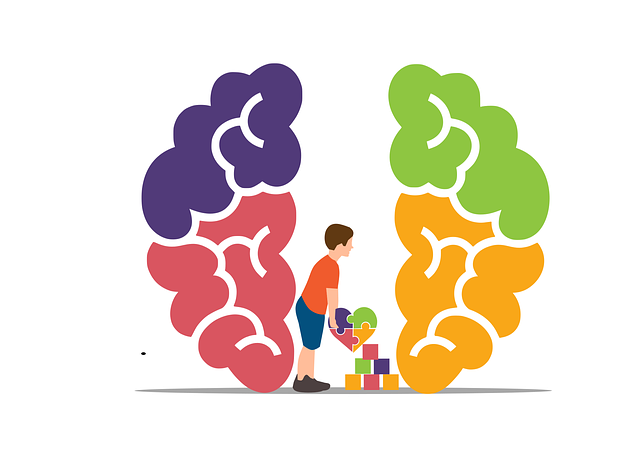Mental health professionals are adopting comprehensive risk assessment strategies for superior relationship issues therapy, integrating self-awareness exercises to help clients identify and address vulnerabilities. This holistic approach, which prioritizes inclusive environments, self-care, and staying informed through podcasts, enhances resilience and strengthens support for clients on their mental health journeys. By fostering secure alliances and encouraging open communication, therapists facilitate personalized interventions, promote positive thinking, and empower individuals to overcome obstacles for improved outcomes.
Mental health professionals continually face complex challenges, with risk assessment being a cornerstone of effective practice. This article guides you through critical aspects of mental health risk management, focusing on understanding unique risk factors in this domain. We explore comprehensive risk assessment strategies, emphasizing the importance of tailored approaches for diverse client populations. Furthermore, we delve into building resilient therapeutic relationships as a key component to enhancing therapy outcomes and mitigating potential superior relationship issues.
- Understanding Risk Factors in Mental Health Practice
- Implementing Comprehensive Risk Assessment Strategies
- Building Resilient Relationships for Superior Therapy Outcomes
Understanding Risk Factors in Mental Health Practice

In the intricate field of mental health therapy, understanding risk factors is paramount for professionals to deliver effective care. These factors can manifest in various forms, ranging from personal challenges within the therapist’s own life to systemic issues prevalent in society at large. For instance, Superior Relationship Issues Therapy might uncover underlying emotional intelligence (EI) gaps, where therapists struggle to manage their emotions or empathize with clients, impacting treatment outcomes.
Moreover, navigating complex client cases often requires professionals to confront the pervasive Mental Illness Stigma Reduction Efforts. Effective mental health practitioners must be adept at fostering inclusive environments, ensuring their own emotional wellness through self-care practices and staying abreast of advancements in the Mental Wellness Podcast Series Production. This holistic approach not only enhances their resilience but also strengthens their ability to support clients in navigating their mental health journeys.
Implementing Comprehensive Risk Assessment Strategies

Mental health professionals are increasingly recognizing the importance of comprehensive risk assessment strategies to ensure safe and effective therapy. By integrating advanced assessment techniques, therapists can identify potential risks and vulnerabilities early on, allowing for proactive interventions. This involves a multifaceted approach that goes beyond surface-level evaluations. One key component is fostering self-awareness exercises within the therapeutic framework, enabling clients to recognize and articulate their inner strengths and weaknesses.
This process empowers individuals to take ownership of their mental health journey, actively participating in strategies aimed at anxiety relief and overall well-being. Furthermore, superior relationship issues therapy benefits from this depth of understanding, as therapists can tailor interventions to address specific challenges while fostering a supportive and secure therapeutic alliance. This holistic approach ensures that both the therapist and client are equipped to navigate potential risks effectively.
Building Resilient Relationships for Superior Therapy Outcomes

Mental health professionals must cultivate resilient relationships with their clients to achieve superior therapy outcomes. Building strong connections fosters a safe and supportive environment, encouraging open communication and trust. This foundation is essential for effective therapy, as it allows individuals to explore sensitive topics and engage in meaningful conversations. By creating a solid bond, therapists can better understand their clients’ needs, emotions, and challenges, thereby tailoring interventions for personalized care.
Resilient relationships also promote positive thinking and empathy building strategies. Through active listening, genuine interest, and Mind Over Matter principles, professionals can help individuals reframe negative thoughts and develop coping mechanisms. This supportive dynamic strengthens the therapeutic alliance, motivating clients to persist through obstacles and embrace growth opportunities. Ultimately, these resilient connections are key to enhancing therapy effectiveness and achieving positive outcomes for mental health treatment.
Mental health professionals play a crucial role in helping individuals navigate complex emotional journeys. By implementing robust risk assessment strategies, focusing on understanding unique risk factors, and fostering resilient relationships, therapists can enhance their practice significantly. These approaches not only ensure the safety of clients but also contribute to superior therapy outcomes by addressing potential issues early on. Remember, the key lies in a comprehensive, empathetic, and proactive approach to mental health care.













